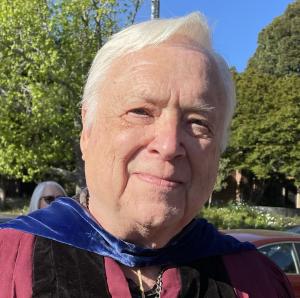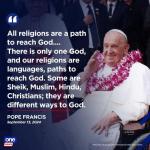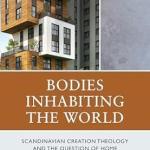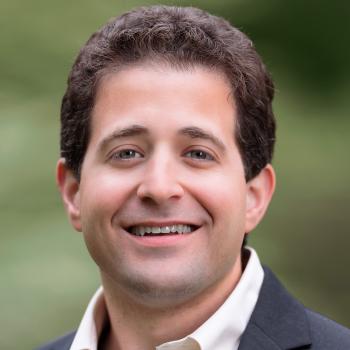Pope Francis vs Jesus as the Only Way, Part 2

In Part 1 of “Francis vs Jesus,” we cited Pope Francis’ address at the Catholic Junior College in Singapore on September 13, 2024, which included: Tutte le religioni sono un cammino per arrivare a Dio. That is, “All religions are path[way]s to reach God.” We noted how detractors cited Jesus, “I am the way, and the truth, and the life. No one comes to the Father except through me” (John 14:6). Do we have a stand-off: Francis vs Jesus?
In what follows, I wish to offer some clarifications. Just what are our options for thinking about this? Here is the way I cut the theological pie into confessional universalism, confessional exclusivism, and supraconfessional universalism (Peters, God–The World’s Future, Chapter 12).
1 Confessional Universalism
As confessional, the confessional universalist is a person who confesses a faith commitment, who affirms as true what he or she believes in. As universal, this truth applies to all times and all places. This truth does not represent merely the subjective perspective of the believer alone. Rather, it represents an objective claim regarding the reality we all share.
Over the decades I have engaged in serious multi-religious dialogue with scholars within the Hindu and Buddhist traditions. In addition, I have teamed up with Muslims to work on the doctrine of creation and on issues in bioethics (Peters, Iqbal and Haq 2002). Increasingly, we Christian pastors and theologians along with representatives of differing religious traditions are finding it both necessary and enjoyable to work with one another on both theoretical as well as ethical matters.

But make no mistake. The Christian claim regarding the universality of God’s creative power, Christ’s saving effect, and the sanctifying gifts offered by the Holy Spirit cannot be compromised. These doctrines still testify to what has been revealed in history and scripture about the whole of reality. My friends and colleagues, Muzaffar Iqbal and Nomenal Haq, are equally convinced of the universal reach of the Qur’an’s revelation regarding Allah. “Frankly,” said Dr. Iqbal on one occasion at dinner, “I must declare you, Ted, to be an infidel.” We continued to eat our supper together.
Virtually every religious tradition makes universal claims. That’s the nature of religion. Religions construct worldviews within which every aspect of existence fits. If you wish to have friends adhering to different religions, then get over it.
It would be a crime to demand of a Muslim that he or she sacrifice the universal scope of the Islamic religious claim. Similarly, it would be a crime to put such a demand on a Christian or a Buddhist. Confessional universalism belongs to the essence of such a tradition. This demands respect, I believe. My Muslim colleagues and I share that respect. It is a precious thing.
2 Confessional Exclusivism
The confessional exclusivist position is the view that once one has affirmed faith in the centrality of Jesus Christ and the absoluteness of the revelation that Jesus is “the way, and the truth, and the life” (John 14:6). It then follows that respect for alternative positions and interreligious dialogue are unnecessary. There cannot be two paths to the same truth and life. In fact, respect for competing religious claims would be outright apostasy.
Because of the universal scope of the religious claim, confessional exclusivism prompts mission with the goal of conversion.
During his Singapore address, Pope Francis criticized confessional exclusivism.
If you start arguing, “My religion is more important than yours…,” or “Mine is the true one, yours is not true….,” where does this lead? Somebody answer. [A young person answers, “Destruction”.] That is correct.
In pursuing its mission, the confessional exclusivist need not necessarily be arrogant. Nor does he or she need to feel fragile or intimidated by competing universal claims. Nor even combative. A person of faith can live and converse with confidence—not arrogance—in this.

This means that the presentation of the claim to truth in Jesus Christ should be open, aboveboard, without tricks or gimmicks, and non-defensive. If one is genuinely concerned with the truth — and if the Spirit is in fact the truth — then one can speak with a certain attitude of letting go, of letting the truth do its own work. This is in part what Paul means when he says that “we refuse to practice cunning or to falsify God’s word; but by the open statement of the truth we commend ourselves to the conscience of everyone in the sight of God” (2 Cor. 4:2).
In evangelism, the temptation to employ techniques of persuasion such as belittling, browbeating, cajoling, flattering, or verbal bribing should be resisted. Such propaganda techniques tend to deny the integrity of the conversation partner and even give evidence of one’s lack of confidence in the truth. In the long run, truth for both us and for our friends in other religious traditions must be a matter of the heart. And a conviction of the heart cannot be won by force or trickery (Ps. 51:6; 1 Pet. 1:22).
3 SupraConfessional Universalism

Over the last half century, within the larger Christian tradition a revolutionary new school of thought has arisen. It’s most frequently called ‘religious pluralism’. Reputable scholars such as John Hick, Paul Knitter, Wilfred Cantwell Smith, and Hans Küng represent a school of thought that would redefine Christianity – and redefine every other religion as well – so as to eliminate both religious universalism and religious exclusivism.
Religious pluralists are critical of the emphasis on the centrality and universality of Jesus Christ within the confessional faith of historic Christianity. This means Christians should change their belief. Christians should de-Christologize.
Hick in particular grandisonantly argues that the Chalcedonian two-natures Christology represents an unwarranted deification of an otherwise human Jesus. And this he argues has led to the unconscionable Christian attitudes of exclusivity and triumphalism. To have genuine interreligious cooperation, Hick contends, Christians must overcome this tendency toward exclusivity at the outset. This requires removing Jesus Christ from his position at the center of God’s revelation and from his position in the divine Trinity. Hick would separate himself from both the confessional universalist and confessional exclusivist models we’ve already reviewed.
Like Ramakrishna and Vivakananda in the 19th century, who saw all the religions of the world as different roads up the same mountain to Brahman, today’s supraconfessional universalists see the various religions as different roads to the same center. What is at the center? The ‘godhead’, sometimes called ‘the Real’. There is one divine noumenon (transcendent religious reality) behind all the religions. That godhead, say religious pluralists, provides for the cognitive or informational input for each tradition. This divine input is interpreted by the minds of each tradition in terms of its own categorical system of thought, so that the one numinous reality becomes expressed in different modes of historically conditioned interpretation.
The Christian religion allegedly consists in one of the many such historical modes of expression for this one divine reality. Thus, the claims of confessional Christianity can be said to be true for Christians in Western society, but what Hindus and Buddhists believe in the East is equally true for them. This is where the term, pluralism, applies.
“Religious pluralism is the view that there is no one-and-only true and salvific faith….Pluralism regards all the great world faiths as equally authentic and salvific” (Hick 2010, 153).
Diana Eck, chair of Harvard’s pluralism project, employs the metaphor of a “world house,” within which live differing religious perspectives as a single family. Together they engage one another, seeking to understand one another in their differences.
 The Eck method differs from the Hick method of subordinating the differing perspectives to a transcendent godhead or Real. “Religious pluralism is not primarily about common ground,” she writes. “Pluralism takes the reality of difference as its starting point. The challenge of pluralism is…to discover ways of living, connecting, relating, arguing, and disagreeing in a society of differences” (Eck 2007, 745). Eck is less willing than Hick to disregard the incompatible universal claims made by competing religious traditions.
The Eck method differs from the Hick method of subordinating the differing perspectives to a transcendent godhead or Real. “Religious pluralism is not primarily about common ground,” she writes. “Pluralism takes the reality of difference as its starting point. The challenge of pluralism is…to discover ways of living, connecting, relating, arguing, and disagreeing in a society of differences” (Eck 2007, 745). Eck is less willing than Hick to disregard the incompatible universal claims made by competing religious traditions.
It’s important to note that Hick and his pluralist colleagues no longer confess the universalist claims of either their own religion or the religion of another. Rather, they deny inherited religious claims to universality and substitute their own non-religious universal figurehead, the godhead or the Real. In short, to beceome a religious pluralist one might have to stop believing selected inherited religious claims.
This is why I label the pluralist position supraconfessional universalism. It seeks to supersede previous confessional commitments within Christianity or within Hinduism in order to embrace what we might call an extra-religious or perhaps philosophical affirmation regarding a universal or comprehensive perspective. Hick’s metaphysical thesis, expressed clearly in the title of one of his books, God Has Many Names, is that there is only one very transcendent divine reality that is partially revealed in Christianity and is similarly partially revealed in non-Christian religious traditions as well.
In addition, Hick avers that every religion is salvific. What!?
Does every religion deliver salvation?
I wonder: just how does a religious pluralist know that every tradition is salvific? It is important to note that this assertion regarding the presence of salvation in all the religions is a philosophical assumption. It is not the result of an empirical investigation of existing religious traditions to see if salvation is actually present. This dogma – every religion is salvific – is drawn out of the thin air breathed by the supraconfessional universalist.
I teach in an interreligious institution, the Graduate Theological Union. And I love it. But authentic interreligious dialogue would be eviscerated by the supraconfessional universalist position in two ways. First, there would be the loss of two distinctly different perspectives, one for each set of religious claims. Authentic religious claims become subordinated to the supraconfessional assertion that such claims are only partial, not universal. Second, the dogmatism of the supraconfessionalist position assumes a universalist doctrine that is itself immune from rejection by any particular religious tradition. Faith in the godhead or the Real is absolutized while inherited faith in Allah or Yahweh become relativized. Because the supraconfessionalist already knows ultimate reality apart from any one religious tradition, the need for interreligious dialogue evaporates.
Envoi

I believe holding the confessional universalist position is the most authentic option both for internal religious integrity and for respecting those who hold a competing universalism.
Over against the supraconfessional universalist position, the confessional universalist can be more honest regarding the fundamental claims of the Christian faith. And the confessional universalist is better able to understand sympathetically the normative if not exclusivist claims of other traditions such as Islam.
On the one hand, confessional universalism must grant the realistic possibility that interreligious dialogue just might end with a standoff. Dialogue might conclude a set of claims and counterclaims with no resolution, and with no pretense of an invisible higher unity of agreement.
On the other hand, this is by no means inevitable. Christians must remember that the basic symbols of their faith are open and protean in character. The explicated doctrines of faith are not engraved in everlasting cement. Growth and change can be expected, even encouraged. Dialogue may help in this growth. One does not know unless one engages in caring conversation with someone with differing beliefs. One can enter into the conversation with nothing more than the desire to see what comes of it.
Conclusion
In the battle – Francis vs Jesus – it appears that Francis has sided with the supraconfessional universalists. Francis and his supraconfessional universalist friends have become exclusivists. Why? Because they exclude Christians for whom Jesus is the only way, truth, and life. And, of course, they exclude adherents to any other religious tradition with a universalist claim.
Does this papal enunciation rank among those spoken ex cathedra? Is it infallible?
In a future post I will argue that comparative theology is a fit method for those who hold the confessional universalist understanding of their own religious tradition.
ST 2024 Pope Francis vs Jesus as the Only Way, Part 2
ST 2023 Pope Francis vs Jesus as the Only Way, Part 1
ST 2025 What is Comparative Theology?
ST 2005 What is Justification by Faith?
ST 2006. Dicastery for the Doctrine of the Faith
2023 Parliament of the World’s Religions: Ultimate Unity
▓

For Patheos, Ted Peters posts articles and notices in the field of Public Theology. He is a Lutheran pastor and emeritus professor at the Graduate Theological Union. He co-edits the journal, Theology and Science, with Robert John Russell on behalf of the Center for Theology and the Natural Sciences, in Berkeley, California, USA. His single volume systematic theology, God—The World’s Future, is now in the 3rd edition. He has also authored God as Trinity plus Sin: Radical Evil in Soul and Society as well as Sin Boldly: Justifying Faith for Fragile and Broken Souls. He recently published. The Voice of Public Theology, with ATF Press. See his website: TedsTimelyTake.com and blog site, https://www.patheos.com/blogs/publictheology/ .
▓
References
Capetz, Paul:. 2005. “God and Religious Diversity: Toward a Theocentric Pluralism.” In Constructive Theology, by eds Serene Jones and Paul Lakeland, 60-66. Minneapolis MN: Fortress.
Eck, Diana. 2007. “Prospects for Pluralism: Voice and Vision in the Study of Religion.” Journal of the American Academy of Religion 75:4 740-750.
Hick, John. 2010. The New Frontier of Religion and Science. New York: Macmillan Palgrave.
Peters, Ted. 2015. God–The World’s Future: Systematic Theology for a New Era. 3rd. Minneapolis MN: Fortress Press.
Peters, Ted, Muzaffar Iqbal, and eds. Syed Nomanul Haq. 2002. God, Life, and the Cosmos: Christian and Islamic Perspectives. Aldershot UK: Ashgate.














